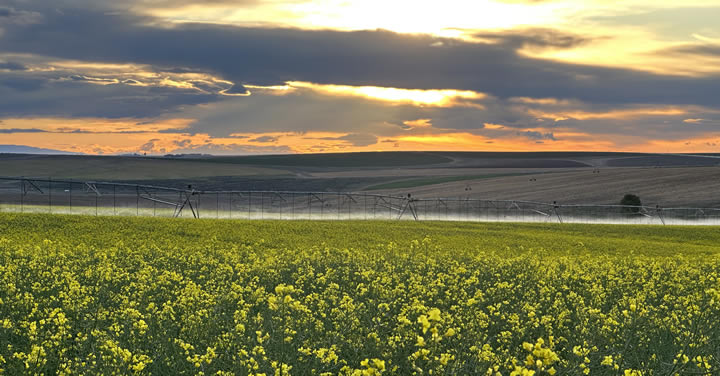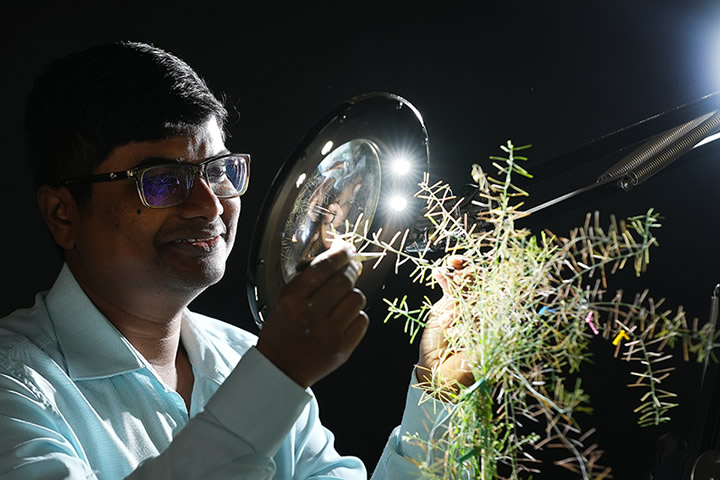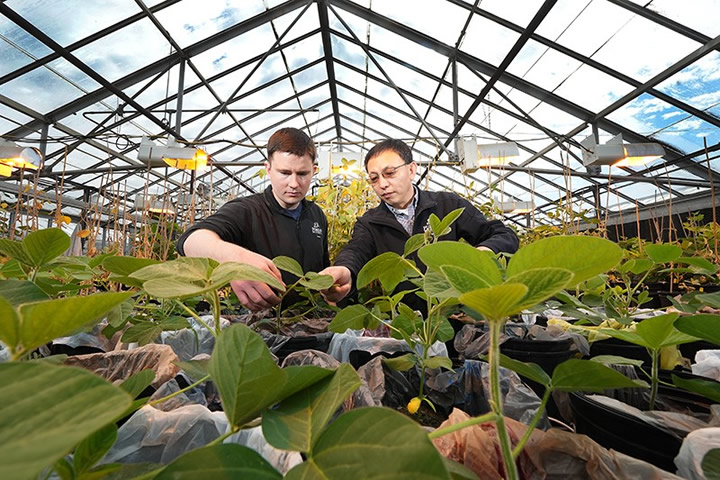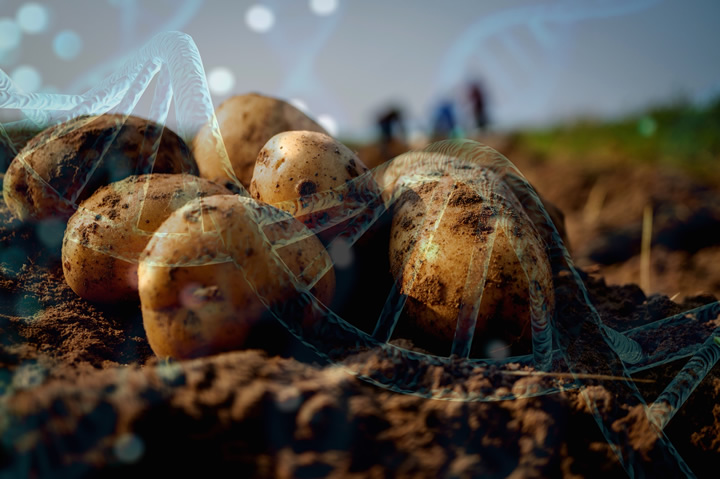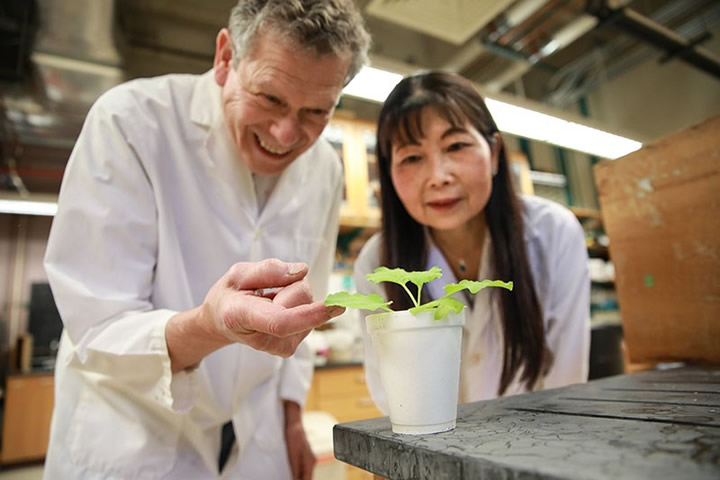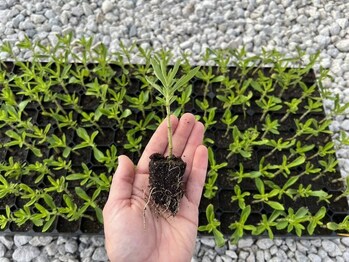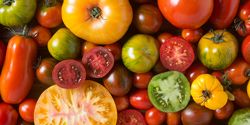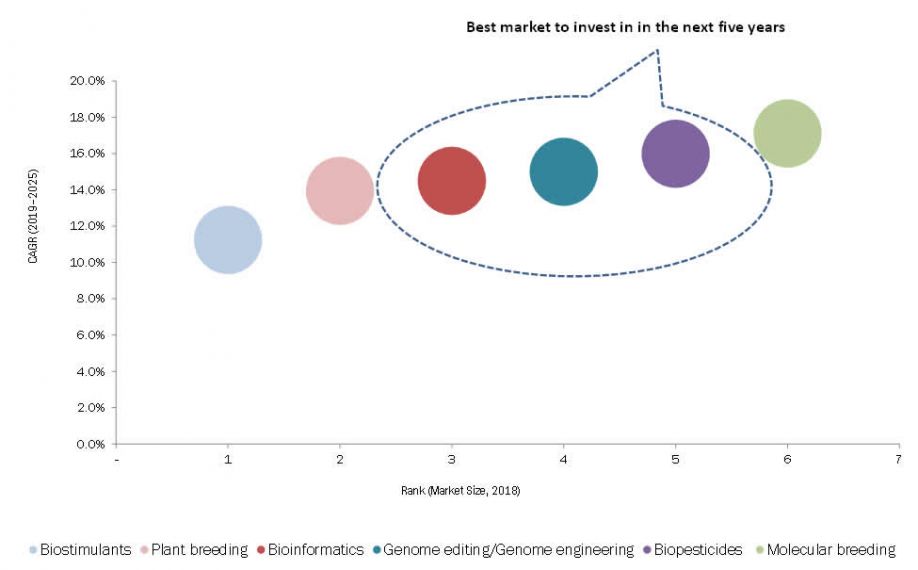Rubisco Seeds: North American Record-Breaking Canola in Washington State: 340 US Gallons of Oil Per Acre
This combination of genetics and refined production agronomy had produced pod-laden canopies with exceptional uniformity that looked destined for the record books.
GreenVenus Introduces Fast-Growing Lettuce Varieties for Indoor Farming
The company is developing healthy, nutrient-rich specialty vegetables and has now created faster-growing lettuce cultivars, which thrive in controlled environments, growing nearly twice as fast and with larger biomass when compared to conventional lettuce varieties.
Purdue-USDA team develops fast-track process for genetic improvement of plant traits
The Purdue-USDA team sought to build a resource that learns, from large amounts of publicly available data, to quickly identify what special genes called transcription factors regulate the expression of a given trait in various plant species.
Gene seekers discover atypical genes that control multiple valuable soybean traits
Using relatives of wild soybean, scientists can use gene-editing methods to modify genes that create new varieties more suitable for agricultural production
REVOLUTIONISING THE UK POTATO INDUSTRY: INNOVATIVE PRECISION BREEDING PROJECT PROMISES RADICAL SOLUTIONS
Researchers will focus on two key goals: reducing bruising-related discoloration and making potatoes quicker to cook. These improvements aim to enhance potato quality, cut down on food waste, and meet the evolving needs of consumers.
Purdue biology innovation allows the introduction of valuable traits in plants without creating transgenic plants
Patent-pending novel Agrobacterium strains deliver transfer DNA to a plant's nucleus without integrating it into the genome
Splenda® Stevia Farm Announces Official Operation of Its Fully Integrated Us-based Stevia Farm, Building a New American Industry
Splenda's unique Stevia genetics and innovative US processing will yield high-quality, superior tasting stevia and positively impact the global supply chain
Is the Future Tomato Red?
At one time solely being known as the jewel in the summer salad, the role of the tomato has now evolved into something much bigger - potentially game-changing, in fact. Could it be about to solve the global food crisis? At least, one greenhouse in Holland thinks so.
Using Minichromosomal Technology in Agriculture
Minichromosomal technology does not alter the plants genes in any way. Resulting in faster regulatory approval and a quicker acceptance by farmers.
PLANT BIOTECHNOLOGY MARKET
Plant biotechnology plays a vital role in developing new varieties and traits, which include transgenic (genetic engineered) crops, using genetics and genomics and marker-assisted selection (MAS).
A new tomato ideal for urban gardens and even outer space
These new gene-edited tomato plants look nothing like the long vines you might find growing in a backyard garden or in agricultural fields. The most notable feature is their bunched, compact fruit.
Genetic Engineering is a Driving Force for Modern Agriculture
Genetic engineering permits scientists to select only one definite gene to implant. This avoids introducing other genes with unwanted attributes. Genetic engineering also speeds up the development of new foods with wanted traits.
Rewiring plant defence genes to reduce crop waste
This method could render crops more resilient against disease, helping mitigate crop wastage throughout the world. Since the system can be implemented by re-wiring plants natural defence mechanisms, no external genetic circuitry needs to be added.
Records 1 to 13 of 13
Featured Product

Maximize Growth and Savings with Cree LED's J Series® LEDs
Cree LED's J Series® LEDs offer a versatile range of solutions for horticulture applications, delivering exceptional performance and efficiency. The J Series 2835 3V N Class Color LEDs are available in 15 vibrant colors with industry-leading efficacy, providing tailored lighting options for plant growth. The J Series JR5050C E Class White LEDs boast the highest efficacy among high-power LEDs, enabling up to 40% system cost savings. For additional flexibility, the J Series JR5050B K Class White LEDs offer best-in-class efficacy with 6V and 30V options. The J Series JB3030C E Class White LEDs provide outstanding 3030 efficiency with a typical output of up to 3.33 PPF/W, while maintaining footprint compatibility with the popular 301B/H. Lastly, the J Series JB2835B G Class White LEDs feature the highest efficacy in the 2835 platform, ensuring optimal performance for horticulture lighting systems.

